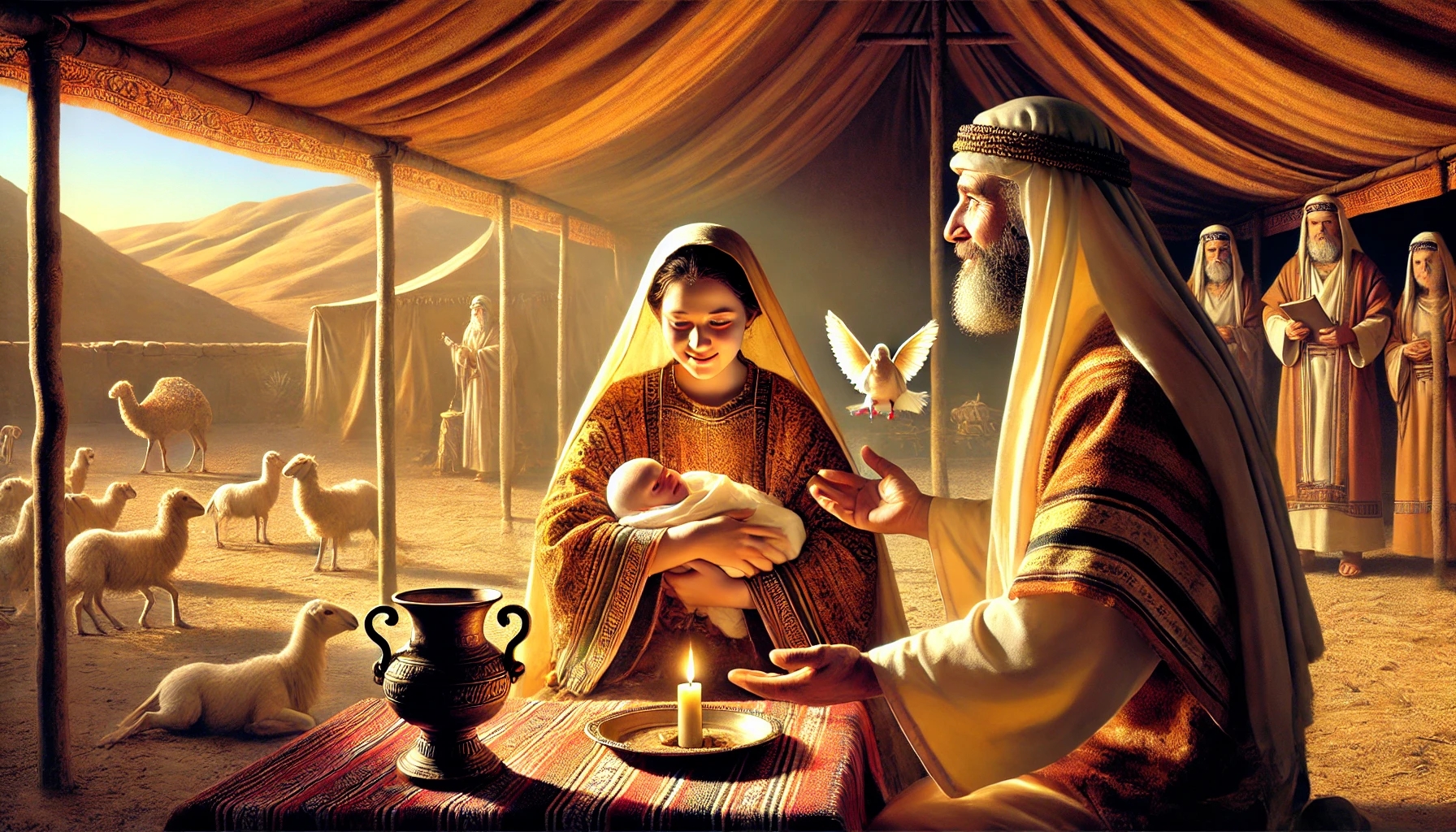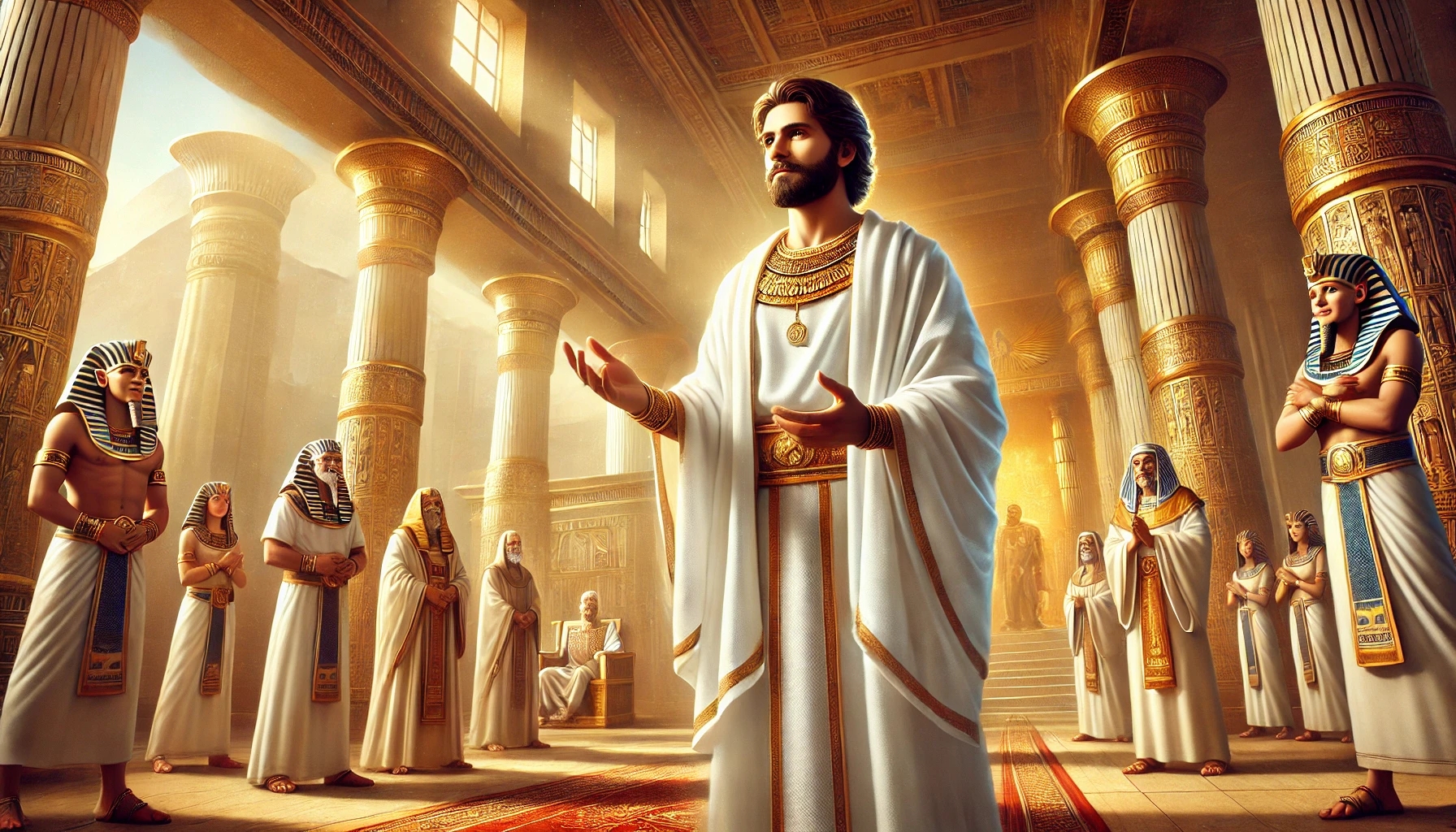
📅 July 27, 2025
📖 DAILY BIBLE READING
✨ Leviticus 12 – Cleansing and Restoration
🔥 God’s care in the time after childbirth
══════════════════════════════════════════════
📜 Bible Text – Leviticus 12 (KJV)
And the Lord spake unto Moses, saying,
2 Speak unto the children of Israel, saying, If a woman have conceived seed, and born a man child: then she shall be unclean seven days; according to the days of the separation for her infirmity shall she be unclean.
3 And in the eighth day the flesh of his foreskin shall be circumcised.
4 And she shall then continue in the blood of her purifying three and thirty days; she shall touch no hallowed thing, nor come into the sanctuary, until the days of her purifying be fulfilled.
5 But if she bear a maid child, then she shall be unclean two weeks, as in her separation: and she shall continue in the blood of her purifying threescore and six days.
6 And when the days of her purifying are fulfilled, for a son, or for a daughter, she shall bring a lamb of the first year for a burnt offering, and a young pigeon, or a turtledove, for a sin offering, unto the door of the tabernacle of the congregation, unto the priest:
7 Who shall offer it before the Lord, and make an atonement for her; and she shall be cleansed from the issue of her blood. This is the law for her that hath born a male or a female.
8 And if she be not able to bring a lamb, then she shall bring two turtles, or two young pigeons; the one for the burnt offering, and the other for a sin offering: and the priest shall make an atonement for her, and she shall be clean.
══════════════════════════════════════════════
🔵 Introduction
Leviticus 12 presents a short but significant regulation: the purification ritual after childbirth. At first glance, this text seems distant from modern life. But upon closer inspection, it reveals important principles about purity, nearness to God, care, and redemption—timeless themes that still speak to us today.
══════════════════════════════════════════════
🟡 Commentary
🔹1. Physical and spiritual purification (vv. 1–5)
After giving birth, a woman was considered unclean for a certain period and could not take part in Israel’s cultic life. The length of this period differed depending on the child’s gender (40 days for a boy, 80 days for a girl). This rule had both medical-practical and symbolic-spiritual reasons:
-
Medically: A woman needs time to recover after childbirth. God ensures her protection through social separation and rest.
-
Symbolically: Blood was considered the carrier of life, but in a cultic context also a potential source of impurity. The separation illustrated the holiness of God.
🔹2. Sacrifices as access to fellowship (vv. 6–8)
At the end of the purification period, a sacrifice was to be brought:
-
A lamb as a burnt offering (sign of full devotion to God)
-
A dove as a sin offering (sign of restoration and forgiveness)
For poorer families, two doves were allowed as an alternative – a sign of God’s mercy and justice: everyone is welcome, regardless of their means.
🔹3. Why these regulations?
They were not punishments but rather expressions of the distinction between the holy and the common. As beautiful and life-giving as birth is, it still takes place in a world shaped by sin and death. Therefore, a spiritual restoration was needed to return to fellowship with God.
══════════════════════════════════════════════
🟢 Summary
Leviticus 12 regulates the time after childbirth and emphasizes the importance of purity, care, and the restoration of fellowship with God. These laws reflect God’s seriousness about holiness—but also His grace in providing a way to reconciliation for everyone.
══════════════════════════════════════════════
📢 Message for Us Today
Even though we no longer observe these ritual laws today, they remind us that we serve a holy God. Access to Him is precious—and has been opened to us through Jesus Christ, the true sacrificial Lamb.
As described in Luke 2, Jesus was circumcised on the eighth day, and His parents brought two doves—a direct reference to Leviticus 12. Jesus fulfilled this law Himself—and took our impurity upon Himself in order to make us eternally clean.
══════════════════════════════════════════════
💡 Reflection Questions
-
How seriously do I take God’s holiness in my life?
-
Am I grateful for the free access to God through Jesus?
-
How can I walk consciously in “pure” ways today that honor God?
~~~~~ 🔥 ~~~~~
📆 July 27 – August 2, 2025
📆 WEEKLY SPIRIT OF PROPHECY READING
📖 Ellen G. White │ Patriarchs and Prophets – Chapter 20
✨ Joseph in Egypt
📖 Read online here
══════════════════════════════════════════════
🔵 Introduction
Joseph’s life story is one of the most moving accounts in the Old Testament. It shows how God uses suffering, injustice, and severe trials to shape a young man into an instrument of His blessing — not just for one people, but for entire nations. What Joseph experiences reflects divine education, divine faithfulness — and human choice.
══════════════════════════════════════════════
🟡 Commentary
📌 1. Brokenness: Loneliness and Loss (The Beginning of the Journey)
Joseph is betrayed by his brothers, sold, and on his way to a foreign land. His childhood, marked by his father’s favoritism, ends abruptly. He experiences deep emotional wounds and total abandonment. But out of this crisis, something new begins to grow. In his loneliness, Joseph decides to trust God — even when he loses everything else.
📌 2. The Conscious Decision for Faithfulness (Turning Point)
Joseph remembers the teachings about the God of his fathers — and makes a conscious decision: he will remain faithful to God, no matter the cost. This decision becomes the defining turning point in his life. He is no longer a victim of his circumstances but a servant of God — even in slavery.
📌 3. Steadfastness in Temptation (Potiphar’s House)
Joseph is tempted by Potiphar’s wife. The decision lies between secret sin or risky faithfulness. Joseph chooses the harder path and asks:
“How then could I do such a wicked thing and sin against God?” (Genesis 39:9)
He does not choose out of fear of people but out of reverence for God.
📌 4. Faithfulness in the Dark (The Prison Years)
Joseph is unjustly condemned. Despite deep injustice, he holds firm to his faith. He does not become bitter. Instead of self-pity, he serves others, helps, comforts, interprets dreams. The years in prison become a school of character.
📌 5. The Elevation (At the Royal Court)
God opens the doors at the right time. Joseph is elevated — not by chance, but by divine plan. His wisdom, insight, and faithfulness in small things make him Egypt’s administrator. The former slave becomes Father of the Land (Genesis 41:43). God honors his faithfulness with influence and responsibility.
══════════════════════════════════════════════
🟢 Summary
Joseph’s journey takes him from his father’s tent, through slavery and prison, all the way to the Pharaoh’s court. In every phase, Joseph remains faithful to his God — not because it was easy, but because it was right. His strength of character and faith make him an instrument in God’s hands.
══════════════════════════════════════════════
📢 Message for Us Today
God’s guidance is not always visible — but it is always faithful.
Trials reveal our character.
He who honors God in the small things will be entrusted with greater things.
Worldly success is empty without the fear of God — but through reverence for God, success gains lasting value.
Character is shaped in daily life, through small decisions, in the unseen.
══════════════════════════════════════════════
💬 Reflection Question
Where am I right now on my “Joseph journey”? In the pit? In Potiphar’s house? In prison? Or in elevation?
What keeps me from remaining faithful to God under all circumstances?
Is my integrity dependent on external conditions — or on inner conviction?
What “small decisions” today are shaping my character for tomorrow?
LuxVerbi | The light of the Word. The clarity of faith.





















